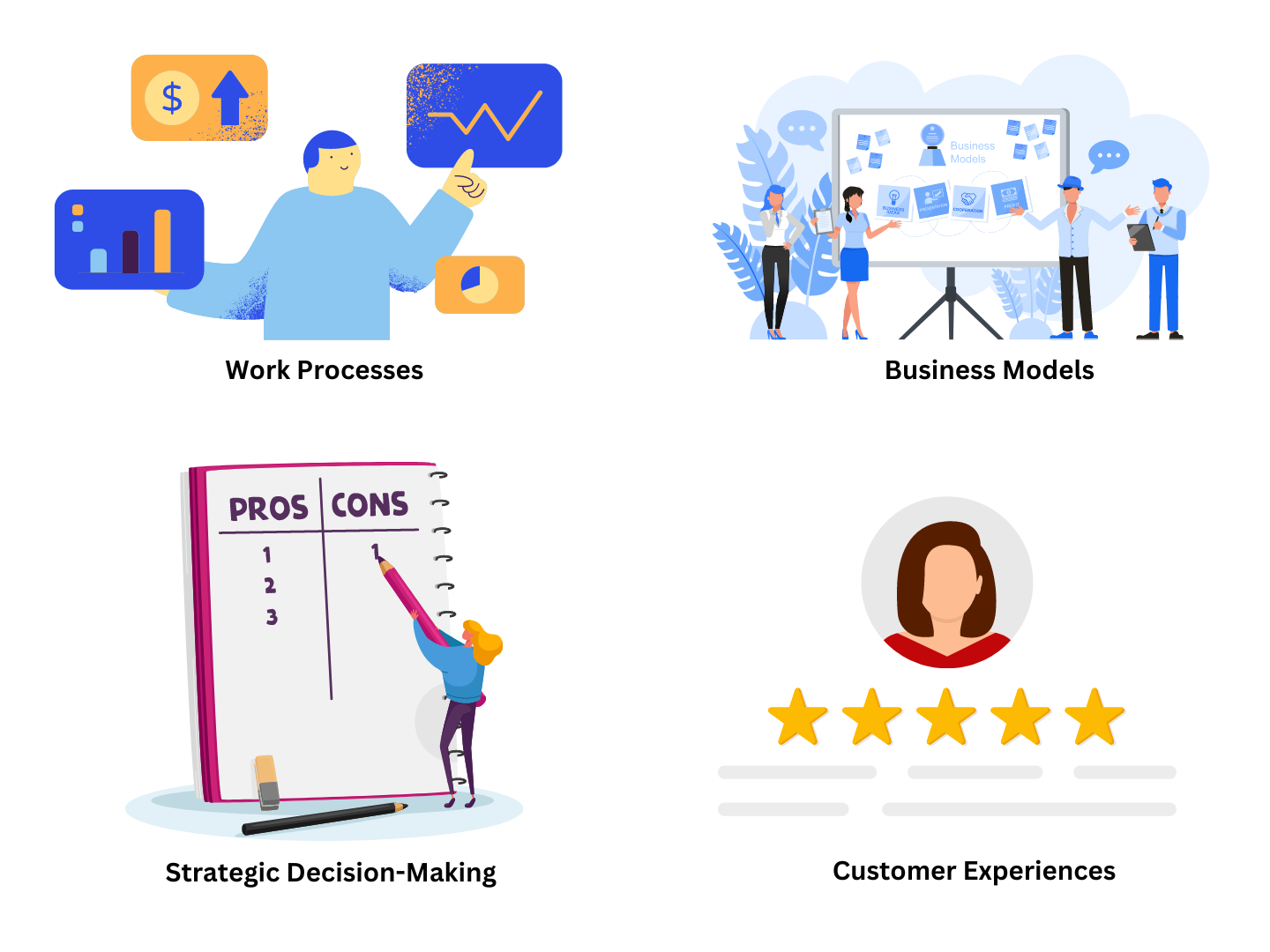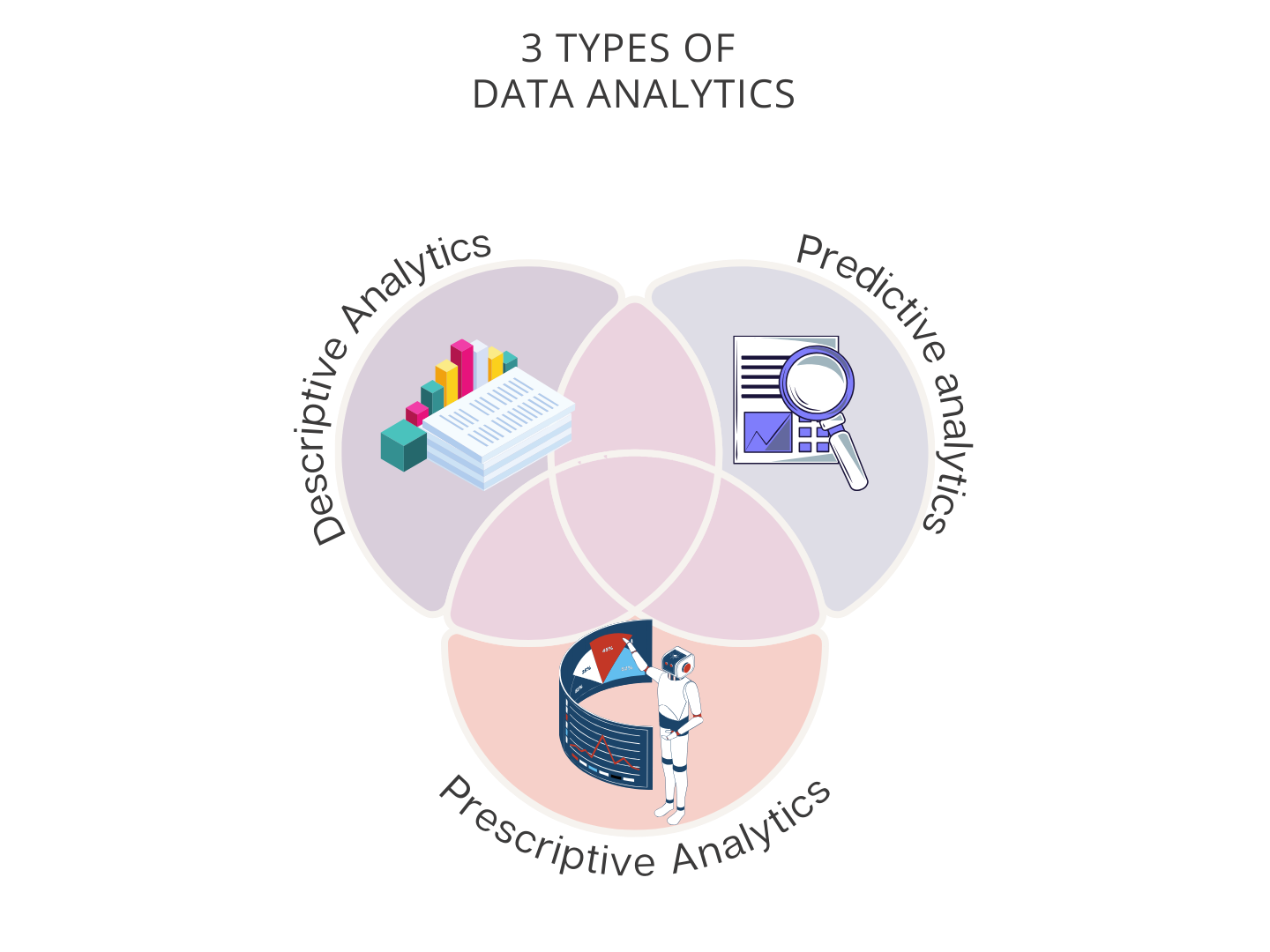Digital transformation requires a major cultural change within an organization that relies on data and analytics.
For all businesses wanting to grow, investing in digitization is the need of the hour. Transforming digitally involves adopting new technology and a shift in culture within the organization.
Today, they go hand in hand. In the context of decision-making and digitizing operations, companies generate vast amounts of data to gain insights into various parameters.
Let’s find out what these parameters are and how digital transformation data analytics helps an organization stay ahead in the game.
The digital transformation process is wide and dynamic. Its definition varies from company to company. Because this transformative process has varied meanings for different organizations, so do its organizational goals.
For some companies, digital transformation effort is providing automating salaries, incorporating better people management resources, enabling dashboards for making data-driven decisions and other benefits. For others, the process could mean offering work-from-home facilities for employees, or utilizing chatbots on their websites to help with customer concerns or queries.
Nonetheless, one general definition of this concept could be described as an imperative investment for businesses that need integration of technology, digital processes, and a focus on data analytics.
Digital transformation entails adopting digital tactics in certain areas of an organization. This may include:

Simply put, data is information, and analytics provide insights that lead to better decisions.
By leveraging data analytics for transforming digitally, businesses can predict market trends, boost products and services, personalize customer experiences, and drive overall business growth.
When data is not healthy and cannot be understood or accessed easily, it adds no value to an organization’s decision-making processes. Siloed data makes it difficult to gain insights. Additionally, it creates constraints on collaborating across different business units and platforms.

Data analytics paves the way for digital transformation. It uses various advanced technologies such as machine learning and artificial intelligence to extract information and drive actionable outcomes.
Some of the most popular and used analytics in digital transformation are:

It is vital to highlight that interoperability is critical to digital transformation data analytics. Interoperability refers to the ability of different systems, applications, or platforms to exchange and interpret data effortlessly.
Data engineering plays a crucial role in enabling effective data analytics, which in turn is an essential component of digital transformation initiatives. Let’s find out how they are connected:
Organizations must collect data from multiple systems, apps, devices, and external sources in the context of digital transformation data analytics. This information may be structured, semi-structured, or unstructured. Data engineering ensures that this different data is collected, processed, and integrated in an efficient, uniform, and accessible way for analysis.
High-quality data is required for relevant and trustworthy analytics. Data engineering is in charge of data cleansing, profiling, and quality checks. Data engineers help ensure that analytics outputs are accurate and trustworthy by identifying and resolving data quality concerns early in the process, which is critical in supporting decision-making during digital transformation programmes.
Data engineering entails identifying adequate data storage technologies and efficiently managing data repositories. Data engineers must examine elements such as data volume, velocity, diversity, and authenticity in the context of digital transformation data analytics. They build data warehouses, data lakes, and data pipelines to handle enormous amounts of data and make it available for real-time or batch analyses, as required for digital transformation initiatives.
Data governance and security are critical in the context of digital transformation. Implementing security measures to protect sensitive data, complying to data privacy standards, and creating access restrictions are all part of data engineering. These safeguards protect the data utilized for analytics, ensuring data integrity and confidentiality during digital transformation activities.
TechVariable emphasizes custom solutions and ensures that its software offerings can work seamlessly together. Our services include MVP, Rapid Application Development, Application Modernization, Cloud Data Analytics, and more.